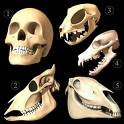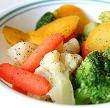 It’s been well documented through the years that vegetarians are healthier than people who eat meat. Vegetarians are less likely to be obese, or to have high blood pressure, diabetes, rheumatoid arthritis, or colon cancer. They are also less likely to die from heart disease. Vegetarians have lower blood pressure even when they eat the same amount of salt as meat eaters and exercise less. Many studies show that vegetarians have less instances of colon cancer, due in large part to the differences in the bacterial flora that is present in the colon.
It’s been well documented through the years that vegetarians are healthier than people who eat meat. Vegetarians are less likely to be obese, or to have high blood pressure, diabetes, rheumatoid arthritis, or colon cancer. They are also less likely to die from heart disease. Vegetarians have lower blood pressure even when they eat the same amount of salt as meat eaters and exercise less. Many studies show that vegetarians have less instances of colon cancer, due in large part to the differences in the bacterial flora that is present in the colon.There are many factors in the vegetarian diet that contribute to better health. Vegetarians consume two to three times as much fiber as do meat-eaters, which has been shown to reduce cholesterol and blood glucose levels, and protect against colon cancer. They also consume more antioxidants, which are found in a wide variety of plant foods and protect cells from oxygen-induced damage and reduce the risk for heart disease, arthritis, cancer, and other diseases.
Vegetarians eat more isoflavones than do meat eaters. These compounds, found mostly in soy foods, are a type of phytochemical. Research shows that isoflavones may reduce the risk for prostate cancer and may improve bone health. Vegetarians also consume much less saturated fat and cholesterol than do meat eaters, resulting in significantly lower levels of blood cholesterol, decreased instances of heart disease and possibly for diabetes and cancer. And, since vegetarians do not eat meat, they are not exposed to heme iron, a type of iron found in meat that may increase the risk of heart disease and cancer.
And lastly, vegetarianism is not only optimally healthy for your body, but your environment and the planet’s animals. It allows you to live more harmoniously with the world around you, which improves mental and emotional health accordingly.







